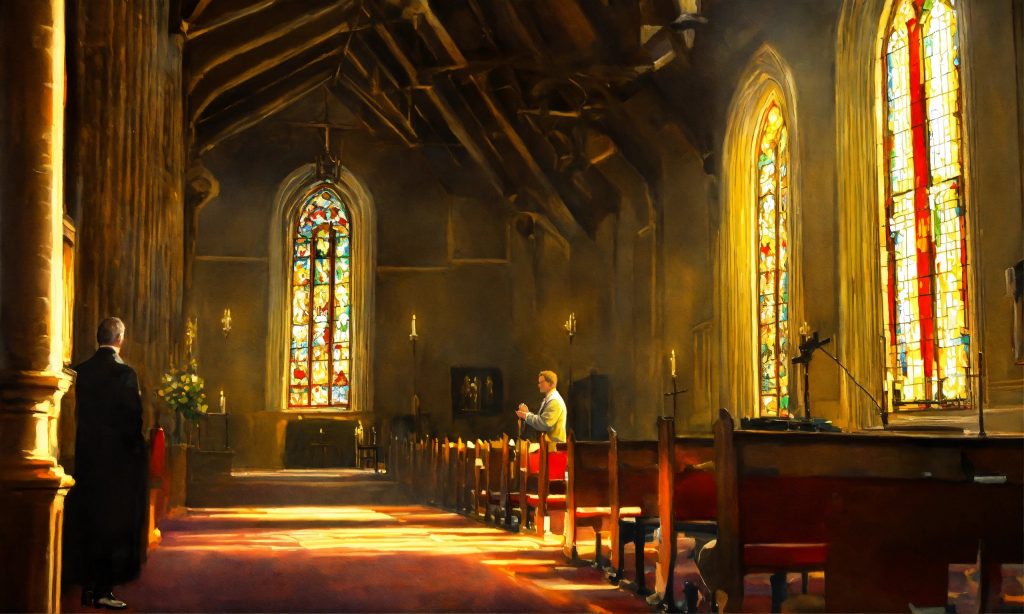
The human condition is woven with imperfections and mistakes.
We all encounter moments of weakness, leading us to actions that leave an indelible mark on our conscience.
In the depths of these experiences, questions often arise: are some sins truly unforgettable, beyond the reach of God’s forgiveness, forever condemning us?
The concept of “unforgivable sins” can be a source of both confusion and fear.
It implies a limit to God’s boundless love and forgiveness, a concept central to Christianity.
While the Bible mentions specific instances of seemingly unforgivable transgressions, it’s crucial to understand these concepts in context and hold them alongside the core message of God’s unwavering grace.
Unforgivable sins. What are they?
Number one is blasphemy of Holy Spirit
The concept of “unforgivable sins” can be a source of both confusion and fear.
It implies a limit to God’s boundless love and forgiveness, a concept central to Christianity.
While the Bible mentions specific instances of seemingly unforgivable transgressions, it’s crucial to understand these concepts in context and hold them alongside the core message of God’s unwavering grace.
It carries significant weight for believers, often causing fear and anxiety due to the perceived severity of the sin and the lack of forgiveness associated with it.
The primary source for understanding this concept comes from the Gospel of Matthew, where Jesus warns: “Therefore I say to you, every sin and blasphemy will be forgiven men, but the blasphemy against the Spirit will not be forgiven men” (Matthew 12:31).
However, Jesus doesn’t explicitly define what constitutes blasphemy against the Holy Spirit.
Unforgivable nature of this sin lies not in the outward act itself, but in the underlying state of the heart. It’s about a deliberate and continuous rejection of God’s love and forgiveness, rather than a single, unintentional act.
Importantly, most Christian denominations believe that worrying excessively about having committed the unforgivable sin is itself a sign that one has not committed it. If someone is genuinely concerned about their spiritual state and seeking forgiveness, they haven’t crossed the line into the unforgivable sin.
If you are troubled by concerns about blasphemy against the Holy Spirit, it’s crucial to seek guidance from a trusted religious leader or counselor. They can provide spiritual support and help you navigate the sin.
It’s important to approach this subject with sensitivity and respect, remembering that God’s forgiveness is vast and available to those who genuinely seek it. If you’re struggling with this concept, remember to focus on cultivating a relationship with God through prayer, seeking guidance from trusted individuals, and allowing yourself to experience his love and grace.
Number two is unrepentant heart
Hebrews 6:1-6 speaks of individuals who have experienced God’s grace and witnessed His goodness, yet choose to turn away.
Their hardened hearts refuse repentance, closing themselves off from the possibility of forgiveness and reconciliation. This persistent rejection of God’s call, despite having received knowledge and grace, can be seen as an unforgivable sin.
An unrepentant heart is associated with spiritual consequences. It is seen as a barrier to forgiveness and salvation, hindering an individual’s connection with the divine. Is often used as a warning against persistent sinfulness and the importance of seeking forgiveness and repentance.
Number three is taking the Mark of the Beast
Revelation 13:16-17 mentions the “mark of the beast,” symbolic of aligning oneself with the forces of evil opposing God. It signifies a conscious decision to reject God’s authority and embrace a path contrary to His will.
While the mark of the beast is a symbolic concept rooted in its historical context, its underlying themes remain relevant.
It encourages us to analyze systems of power, societal trends, and ideologies through a critical lens, discerning the potential for spiritual compromise and corruption.
It stresses the importance of prioritizing our relationship with God above all else, recognizing that earthly gains or conveniences cannot replace His truth and love.
It inspires us to live courageously and act justly, being a voice for truth and righteousness, even in the face of persecution or social pressure.
The mark of the beast is a powerful reminder that our choices have both temporal and eternal consequences. By choosing to align ourselves with God’s will, we not only resist the forces of deception but also embrace the fullness of life He offers.
These examples are not exhaustive lists of unforgivable sins. Rather, they represent specific scenarios highlighting the importance of an open heart receptive to God’s grace and a sincere desire for forgiveness.
The core message of Christianity revolves around God’s boundless love and the transformative power of forgiveness. Throughout scripture, we see countless examples of God’s willingness to forgive even the most grievous sins, provided there is genuine repentance and a turning away from wrongdoing.
King David: Despite committing adultery and murder, David’s sincere repentance and brokenness before God led to forgiveness and restoration (2 Samuel 11-12).
The Prodigal Son: The parable in Luke 15:11-32 illustrates God’s unconditional love and acceptance of the repentant sinner, regardless of their past transgressions.
The Apostle Paul: Formerly known as a persecutor of Christians, Paul experienced radical conversion and became a powerful advocate for God’s grace (Acts 9).
These stories, and countless others, offer a powerful message of hope. No matter how deep the regret, no matter how severe the sin, the path to forgiveness remains open through genuine repentance, faith in Jesus Christ, and a sincere desire to turn away from wrongdoing.
While the concept of “unforgivable sins” may raise concerns, it’s crucial to remember God’s immense love and unwavering forgiveness.
Focusing on fostering a relationship with God rooted in faith, repentance, and a desire to follow His teachings paves the way for experiencing His grace and journeying towards a life of purpose and redemption.
If you are struggling with guilt, shame, or the fear of unforgivable sins, know that God’s love and forgiveness are always available. Seek guidance from religious leaders, engage in prayer and reflection, and allow yourself to experience the transformative power of God’s grace.





